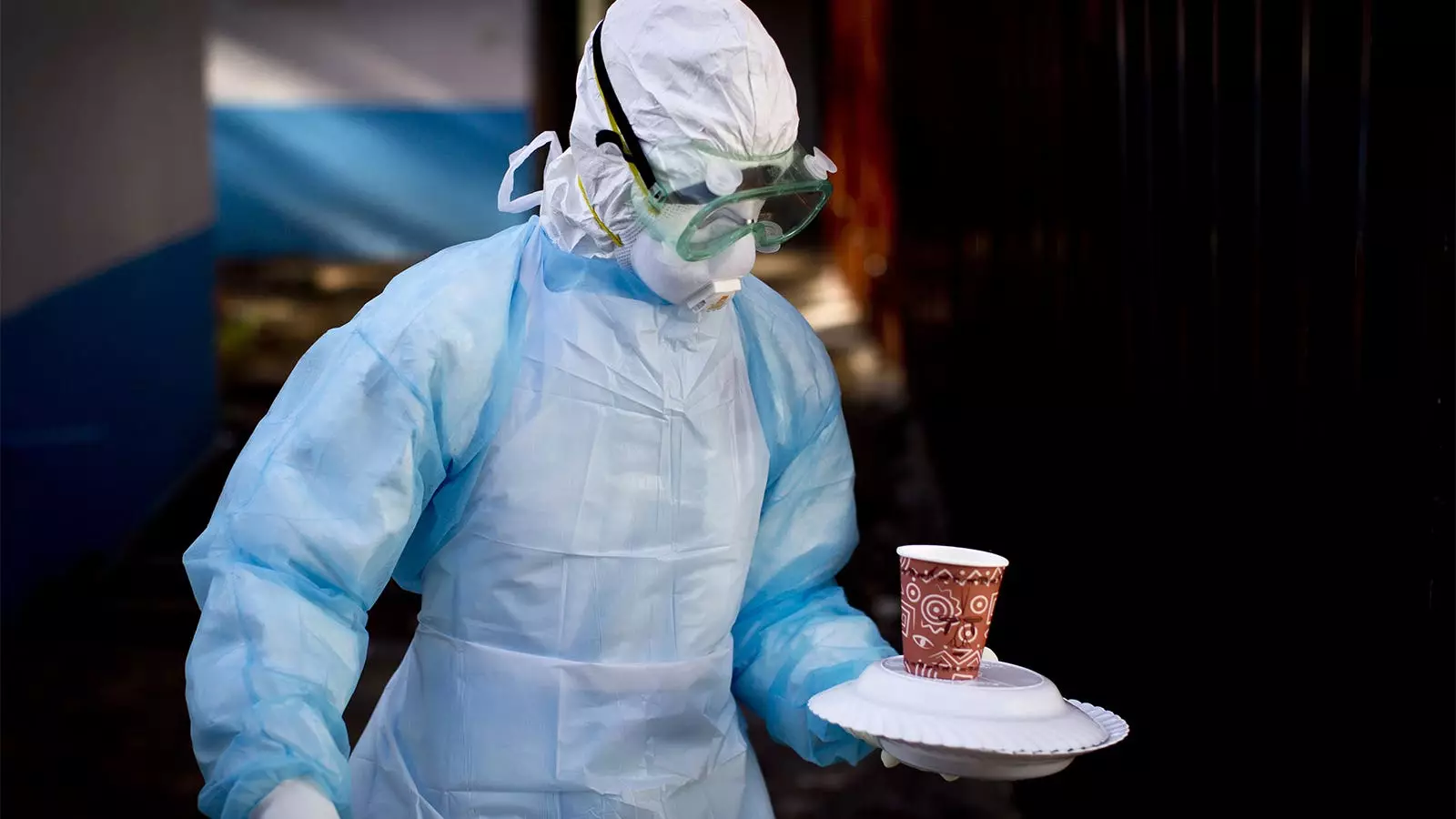In a troubling development, Rwanda has declared an outbreak of the Marburg virus, a highly contagious and lethal disease that presents significant challenges to public health infrastructures. With eight confirmed deaths and twenty-six additional cases, the outbreak has raised alarm bells not only within Rwandan borders but also internationally. The absence of an authorized vaccine or specific treatment for Marburg amplifies the risks associated with this hemorrhagic fever, which has a staggering fatality rate of up to 88% without intervention.
Health Minister Sabin Nsanzimana has reported a swift escalation in cases since the outbreak declaration, emphasizing the critical need for contact tracing and public awareness. The virus, which jumps from infected fruit bats to humans, is characterized by symptoms that emerge within a broad window of three days to three weeks. These symptoms range from fever and severe muscle aches to gastrointestinal distress, culminating in life-threatening hemorrhaging in severe instances. The public’s response has been to heed warnings to practice physical distancing, although the enormity of the challenge cannot be overstated.
The World Health Organization (WHO) and the U.S. Centers for Disease Control and Prevention (CDC) have mobilized their resources in support of Rwanda’s health response. The WHO is set to collaborate with Rwandan health officials, deploying experts to facilitate epidemiological studies and enhance surveillance systems. Similarly, the CDC is dispatching its own subject matter experts to assist in contact tracing, laboratory testing, and broader public health measures.
This international cooperation is crucial not only to manage the existing outbreak but also to prevent further insidious spread beyond Rwanda’s borders. Although the CDC asserts that there are currently no reported cases in the United States related to this outbreak, a clear communication strategy and rapid response capability are essential in curbing potential transmission pathways.
Historically, the Marburg virus has been less prevalent than its viral relatives such as Ebola, but the lack of a systematic response framework could exacerbate the situation. Previous outbreaks in countries like Angola, Uganda, and South Africa serve as a cautionary tale, highlighting how quickly localized infections can escalate into a wider crisis with devastating public health implications. Since its identification in 1967, Marburg has been linked to similar scenarios, often stemming from viral transmission during research on nonhuman primates.
In light of this, Rwanda’s current predicament is not simply a localized issue, but part of a broader epidemic narrative that transcends continental boundaries. The country’s strategic geographic position in Central Africa necessitates an all-hands-on-deck approach from neighboring nations, whose own health infrastructures can be severely tested by the movement of people and goods through shared borders.
To effectively combat the Marburg outbreak, public health messaging plays a pivotal role. The Rwandan government, in conjunction with health organizations, must not only inform the public about the virus and how it is transmitted but also actively engage communities in preventative measures. A comprehensive community outreach initiative that includes education about recognizing symptoms, understanding the significance of reporting infections, and adhering to quarantine protocols can have a profound impact on outbreak containment.
Rwanda’s ongoing experience with mpox, a milder but equally concerning viral disease, exemplifies the need for a proactive and resilient healthcare response. As Rwanda gears up vaccination efforts for mpox while confronting Marburg, it must ensure that its health systems can adapt and respond to multiple health threats simultaneously. Both diseases underline the interconnectedness of global health and the importance of addressing not just one but multiple health challenges concurrently.
As Rwanda grapples with the Marburg outbreak, the response will require a multi-faceted approach that includes rigorous scientific investigation, effective public health strategies, and international collaboration. The stakes are high, but a concerted effort can mitigate the risks associated with this deadly virus, serving as a blueprint for managing future health crises. The focus must remain on both immediate containment and long-term resilience in the face of infectious disease threats, reinforcing Rwanda’s capacity to safeguard the health of its population.

Leave a Reply